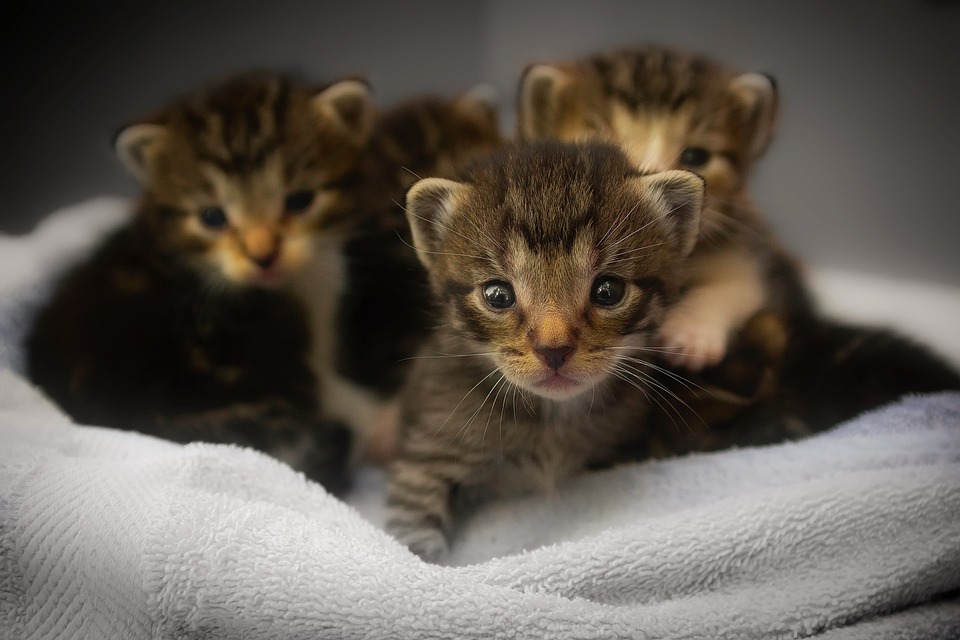in Cats
Introduction:
– The Intricate World of Cat Behavior
– Unraveling the Mystery: Spraying Behavior in Cats
Cats are fascinating creatures with a wide range of behaviors that can sometimes leave their owners puzzled. One such behavior is spraying, which can be both confusing and frustrating for cat owners. In this article, we will delve into the science behind spraying behavior in cats, helping you understand why they do it and how you can address it.
1. What is Spraying Behavior?
Spraying behavior is when a cat releases small amounts of urine onto vertical surfaces, such as walls or furniture, as a way to mark their territory. It is important to differentiate spraying from urinating, as spraying is not a hygiene issue but rather a communication method.
2. Why Do Cats Spray?
Spraying behavior is deeply ingrained in a cat’s evolutionary history. By marking their territory, cats are communicating vital information to other cats in their vicinity. This behavior allows them to establish boundaries and avoid conflicts.
3. How Does Spraying Behavior Work?
Spraying behavior involves the use of pheromones, chemical substances that cats release through their urine. These pheromones serve as a unique scent signature for each cat, conveying information about their identity, availability for mating, and social status.
Understanding the cat’s urinary system is also crucial in comprehending spraying behavior. Cats have scent glands in their urinary tract, and when they spray, they are utilizing these glands to distribute their pheromones effectively.
4. Factors Influencing Spraying Behavior
Several factors can influence a cat’s spraying behavior. Sexual maturity and hormonal changes play a significant role, as intact male cats are more likely to spray than neutered males or females. Stress and anxiety triggers, such as changes in the household or routine, can also contribute to spraying behavior. Additionally, in multi-cat households, social dynamics and competition for resources can lead to spraying.
5. Can Spraying Be Prevented?
The most effective solution for preventing spraying behavior is spaying or neutering your cat. This helps reduce hormonal influences and decrease the likelihood of spraying. Creating a stimulating environment for your cat, with plenty of vertical spaces, scratching posts, and hiding spots, can also deter spraying. Managing stress and anxiety through routine and environmental enrichment is crucial.
6. Addressing Spraying Behavior: Tips and Techniques
If your cat is already spraying, it is important to clean and neutralize the sprayed areas thoroughly to remove the scent. Utilizing products like Feliway, which mimic the natural calming pheromones of cats, can also help reduce spraying behavior. In severe cases, seeking professional help from a veterinarian or animal behaviorist may be necessary.
FAQs (Frequently Asked Questions)
Q1: Is spraying behavior a sign of a health problem?
A1: While spraying behavior is primarily a territorial and communication behavior, it is always important to rule out any underlying health issues. Consulting with a veterinarian is recommended.
Q2: Can spraying be a territorial response to other pets in the household?
A2: Yes, cats may spray as a response to other pets in the household, especially if there are conflicts or competition for resources.
Q3: Can spraying be a result of changes in the household or routine?
A3: Yes, changes in the household or routine can cause stress and anxiety in cats, leading to spraying behavior.
Q4: Is it possible to train a cat to stop spraying?
A4: While it may be challenging to completely eliminate spraying behavior, with proper environmental management, spaying/neutering, and behavior modification techniques, it is possible to reduce and manage spraying.
Q5: Are male cats more prone to spraying behavior than females?
A5: Yes, intact male cats are more prone to spraying behavior due to their hormonal influences. However, females can also spray, especially if they are in heat or feel threatened.
Q6: Can spaying or neutering a cat eliminate spraying behavior?
A6: Spaying or neutering a cat significantly reduces the likelihood of spraying behavior, especially in male cats.
Q7: Are there any natural remedies or pheromone products that can deter spraying?
A7: Yes, products like Feliway, which contain synthetic pheromones that mimic a cat’s natural calming pheromones, can help reduce spraying behavior. Additionally, natural remedies such as herbal sprays or diffusers may also have a calming effect.
Conclusion:
Understanding and managing spraying behavior in cats is essential for maintaining a harmonious environment for both the cat and its owner. By recognizing the reasons behind spraying, implementing preventive measures, and addressing the behavior with appropriate techniques, cat owners can create a stress-free and enjoyable living space for their feline companions.








